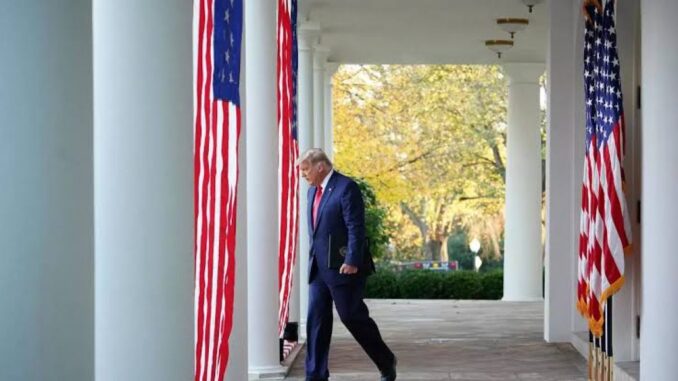
By Professor Allan Lichtman
While the House impeachment managers have focused on events leading up to the Capitol breach, it was the real time response from Donald Trump to the rioters which yields smoking gun evidence of his intent to incite the insurrection. Trump failed to promptly call off his followers or to summon timely assistance for the police, despite pleas from his fellow Republicans caught up in the mayhem. His final words that day connect his incendiary statements about a “stolen election” to the storming of the Capitol.
As he watched the insurrection unfold on television, with some delight according to witnesses, Trump made no immediate demand that the rioters leave the Capitol. He failed to heed the pleas of Republicans in Congress, who desperately tried to call him with no response. “We are begging essentially, and he was nowhere to be found,” Representative Anthony Gonzalez of Ohio said. We know Trump did call Senator Tommy Tuberville of Alabama after mistakenly dialing Senator Mike Lee of Utah. Trump called Tuberville not to ask about his safety or to offer assistance, but to discuss a strategy for objecting to the count of electoral votes.
When rioters breached the Capitol in full view of cameras, Trump did not appear on television to denounce them or tell his followers to cease and desist. Instead, he stoked the incitement with a tweet to attack his vice president and double down on claims about a stolen election. He wrote, “Mike Pence did not have the courage to do what should have been done to protect our country and our Constitution, giving states a chance to certify a corrected set of facts, not the fraudulent or inaccurate ones.”
Trump later sent a tweet in the passive voice, “Stay peaceful!” He sent a similar message more than half an hour later. He still had not appeared in person on any medium at this point. Trump eventually released a video that told his supporters, “You have to go home now.” But he prefaced that with another incitement, “I know your pain. I know you are hurt. We had an election that was stolen from us. It was a landslide election and everyone knows it.” He praised the rioters, “We love you. You are very special.”
The rioters themselves understood they were summoned by him. Video of the mayhem shows them shouting at the police their claims of legitimacy, “We were invited by the president of the United States.” The Trump loyalist Jenna Ryan declared after the Capitol breach, “We were going in solidarity with President Trump. This was our way of going and stopping the steal.”
However, the smoking gun tweet came that evening but was later deleted. Trump wrote, “These are the things and events that happen when a sacred landslide election victory is so unceremoniously and viciously stripped away from great patriots who have been badly and unfairly treated for so long. Go home with love and in peace. Remember this day forever!”
Trump admitted in his own words that violent protest was a likely moment of grievances over an election that thwarted the will of his supporters. But it was Trump himself who ginned up these grievances for two months with a drumbeat of lies about the election that culminated in the fiery rhetoric of his rally. In his tweet, Trump further assured rioters with love that they had acted as patriots rather than insurrectionists. Their storming of the Capitol, he implied, should be forever cherished instead of reviled.
The rioters themselves understood they were summoned by him. Video of the mayhem shows them shouting at the police their claims of legitimacy, “We were invited by the president of the United States.” The Trump loyalist Jenna Ryan declared after the Capitol breach, “We were going in solidarity with President Trump. This was our way of going and stopping the steal.” Meanwhile, Trump has yet to acknowledge the victory of Joe Biden or to retract his claims of a landslide win snatched away by massive fraud.
*Allan Lichtman is an election forecaster and a distinguished professor of history at American University. He is the author of “The Embattled Vote in America: From the Founding to the Present.” He tweets @AllanLichtman. This essay was first published by thehill.com
END

Be the first to comment